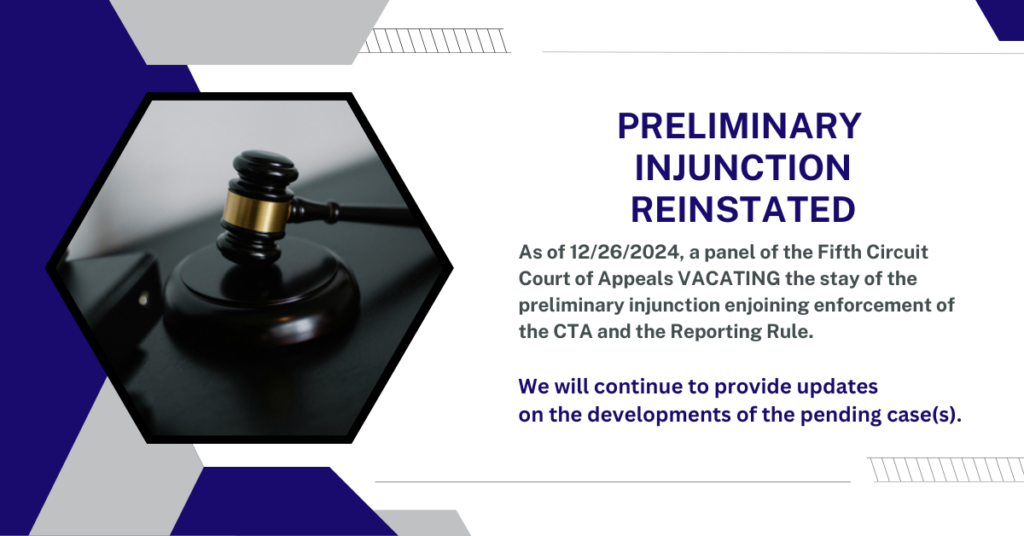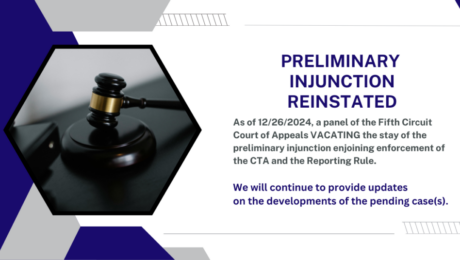HOA Bans of Short-Term Rentals

With the rise of companies like Airbnb and Vrbo, and the increasing amount of real property being purchased for rental usage, short-term rentals has been a big issue for community associations for several years. Not only are we seeing more homeowners’ associations (HOAs) and condominium owners’ associations (COAs) banning short-term rentals, but we are seeing more local governments banning them at the city/township level.
It is important to consider many factors when deciding if your community association should take steps to regulate or ban short-term rentals in your community. Here are some of the typical concerns that are attendant when having short-term renters.
Disturbances
Owners within a community often worry about the noise, vandalism, and left over garbage that may occur from short-term renters. Since short-term rentals are sought out for a variety of reasons, including parties, celebrations, and vacations, it is reasonable to have concerns about excessive noise from things like music and renters coming in at late hours. Furthermore, when people unknown within the community are coming and going, vandalism and property damage becomes a concern. Due to the short-term time frame of the rentals, it can often be difficult to find out which person(s) caused damage and hold them responsible.
Parking & Traffic
Increased traffic into and out of a community and parking are often major concerns with short-term rentals. It is not uncommon for communities to deal with short-term renters parking in unprohibited areas, parking spots that belong to another unit, and congested street parking. Increased traffic can also pose safety concerns to pedestrians.
Safety
Because of the nature of short-term rentals, there are often frequent, unknown visitors to a community. This can make many residents uneasy, especially residents that live alone or have young children. There are valid security concerns when there is no known information about the renters that are coming and going in a community.
At Richer Law, we are here to answer questions and discuss the issues and concerns with short term rentals that your community association may have and guide you through the amendment process of the association’s governing documents.
- Published in Uncategorized
New Update on the Corporate Transparency Act
With this Order, the nationwide injunction enjoining CTA will resume. FinCEN has issued an Alert indicating that reporting companies are not currently required to file beneficial ownership information with FinCEN and are not subject to liability if they fail to do so while the order remains in force.

- Published in Uncategorized
More Updates on the Enforcement of the Corporate Transparency Act

There have been more developments in the cases arguing the enforceability of the Corporate Transparency Act (CTA). On Monday, December 23, 2024, the U.S. Fifth Circuit Court of Appeals lifted the preliminary injunction, which blocked the enforcement of the CTA, issued by the U.S. District Court of the Eastern Texas earlier this month. This presumably restored the January 1, 2025 deadline for filing of the beneficial ownership information (BOI) report.
However, recognizing that additional time may be needed by reporting companies to comply, given the preliminary injunction, FinCEN has extended the January 1, 2025 deadline until January 13, 2025 for reporting companies created or registered prior to January 1, 2024. These companies will need to prepare and file their initial BOI reports with FinCEN to comply with the January 13, 2025 deadline.
We will continue to update on developments on this matter as the related cases are litigated. If you have questions or need a BOI Report filed on behalf of your company or community association, please contact us here.
Related Information:
Corporate Transparency Act Enjoined
Corporate Transparency Act and Beneficial Ownership Information Reporting Requirements
Are Community Associations Reporting Companies Pursuant to the Corporate Transparency Act?
Corporate Transparency Act Enjoined

As discussed in a previous post, the Corporate Transparency Act (CTA) requires most business entities in the United States, including community associations, to report beneficial ownership information to an agency of the Treasury Department,FINCen, by January 1, 2025.
A federal judge, on December 3, 2024, issued an order granting a preliminary injunction blocking the enforcement of the Corporate Transparency Act (“CTA”). The injunction order, granted by a federal judge in Texas in a case initiated by multiple small businesses, states that it applies nationwide and that no business entity needs to comply with the CTA deadline. The Court has held that the CTA is unconstitutional as it exceeds the authority of the federal government.
On December 5, 2024, the federal government did file an appeal to this decision to U.S. Court of Appeals for the Fifth Circuit. Even though it is difficult to predict the timing and ruling of any appeal, it seems as if the January 1, 2025 deadline for BOI reporting will be extended. FinCEN has issued an alert on its website offering the following guidance:
“In light of a recent federal court order, reporting companies are not currently required to file beneficial ownership information with FinCEN and are not subject to liability if they fail to do so while the order remains in force. However, reporting companies may continue to voluntarily submit beneficial ownership information reports.”
It is important to note that there have been cases in other courts, raising the question of the constitutionality of the CTA, and those courts have reached other conclusions. Therefore, there is no guarantee that this injunction will be upheld. It is important for business owners, those deemed beneficial owners under the CTA, and community association boards to stay up to date on the developments of the case and to be prepared to file BOI Reports.
If your business or association has any questions regarding the CTA, the reporting requirements, or the injunction, please reach out to us here.
Related Information:
Corporate Transparency Act and Beneficial Ownership Information Reporting Requirements
Are Community Associations Reporting Companies Pursuant to the Corporate Transparency Act?
- Published in Uncategorized
We Bought a House Together. We Broke Up. Now What?

Although most attorneys would advise against an unmarried couple purchasing real property together, a common issue we see is how to deal with a property purchased by an unmarried couple.
Ohio property law recognizes two groups of people: married people and unmarried people. With no laws protecting unmarried, cohabitating individuals, going through a split with your partner may become an extremely complex, confusing, and frustrating situation.
When faced with this situation, there are essentially three options:
One Party Purchases the Other Party’s Interest
One party can transfer their interest in the property to the other party via a quitclaim deed. If there is no mortgage, this process is relatively easy and potentially only costs the amount for the preparation of documents and recording fees. However, even without a mortgage, things can get complicated when the party leaving feels they are entitled to something for handing over the property- either from the time spent to care for or improve the home or actual monetary contributions made to the home. The parties may have to agree to an amount to be paid to the party leaving in exchange for signing the deed to the staying party.
If both parties are responsible for the mortgage, the party who plans to remain in the property can refinance the loan solely into his/her own name, releasing the other party from any obligation. The party leaving the property would then sign the deed, transferring his/her interest to the other party. You should always contact your mortgage company before prior to taking this action to make sure that you can refinance adequately and also to get their approval for the quitclaim deed. Many mortgages have clauses in them that can bring the entire amount due and owing if a party quitclaims their interest without approval.
The setback we often see with this option is that the party that intends to stay does not qualify for the mortgage amount on their own and thus cannot refinance the loan into his/her name as the sole borrower. Furthermore, we are now seeing parties that want to keep and remain in the property, but do not want to refinance because of the increase of interest rates in the past few years. Those that purchased property while the interest rates were historically low do not want to now refinance at a much higher rate.
Sell the Property
If neither of you wants to stay in the house, or neither qualify for a mortgage on your own (eliminating refinancing as an option), you can agree to jointly sell the property. This is often the least complicated solution. If there is equity in the house, there can be contention on how to split this equity. We often see this issue arise when there were improvements made to the property and one party has put much of their own time or money into making the improvements. This often leads to one party wanting a bigger percentage of the equity. So long as you can agree on a percentage split of the proceeds after the sale of the house, this can allow you to have an easy split not only from the property, but also from your partner.
Partition
The only other option is to petition a court to partition the property. Partitioning a property is the process of determining which owner owes how much of a property, and then either forcing one owner to buy the other out, or selling the property and splitting the proceeds based on ownership.
This option is often considered the last resort because it can be costly, complicated, and time consuming as the courts sort out the facts and make determinations. The property will ultimately be sold judicially, and the court will determine how any proceeds will be split between the parties.
Because of the lack of protections for unmarried people purchasing property together, we highly advise against the purchasing of property between unmarried people, with both being on the deed and mortgage. However, if you do find yourself in this situation, and the relationship has ended, please reach out to our firm to discuss your situation and the options. You have options and we are here to help.
- Published in Real Estate, Real Property
Are Community Associations Reporting Companies Pursuant to the Corporate Transparency Act?

The Corporate Transparency Act (CTA) is a federal law that requires certain businesses to disclose information about their beneficial owners to the Financial Crimes Enforcement Network (FinCEN). The CTA was enacted in 2021 as part of the National Defense Authorization Act with the purpose of preventing and combatting financial crimes.
The CTA requires certain business entities to file a Beneficial Ownership Information (BOI) report with FinCEN. You can learn more about the BOI reporting requirements here.
Much effort has been made to change the CTA to provide an exemption for community associations from the BOI reporting requirements, however, nothing has changed. Most homeowners associations and condominium owners associations will be required to file a BOI report by January 1, 2025. The exceptions to the reporting requirement are associations that 1) are actively held as a 501(C)(4) organization with an IRS exemption or 2) are operating within the United States, have an annual revenue of $5,000,000.00 or more, and have 20 or more employees. Most community associations will not meet the requirements of these exemptions.
The information that will be required for the community association is: 1) legal name, 2) any other identifiers such as “doing business as” or “trading as,” 3) current street address of principal place of business, 4) jurisdiction of formation or registration, and 5) tax payer identification number.
The information that must be provided by the Board Members is: 1) Individual’s name, 2) date of birth, 3) residential address, and 4) identifying number, such as a license or passport, and the state which issued the identification. Beneficial owners must also provide an image of the identification.
Any reporting company and/or beneficial owner who willfully violates this requirement may face civil penalties of fines up to $500 per day that the violation continues and criminal penalties of up to 2 years imprisonment and up to $10,000 in fines. Penalties may be issued for willfully failing to file, filing false information, or failing to correct or update a previously filed report.
Here are some helpful links:
If you have questions regarding the BOI reporting requirements and/or the CTA, or your association needs help filing the report, please contact us at (513) 643-3554 or info@richterlaw.us
Corporate Transparency Act and Beneficial Ownership Information Reporting Requirements

The Corporate Transparency Act (CTA) is a federal law that requires certain businesses to disclose information about their beneficial owners to the Financial Crimes Enforcement Network (FinCEN). The CTA was enacted in 2021 as part of the National Defense Authorization Act with the purpose of preventing and combatting financial crimes.
The CTA requires certain business entities to file a Beneficial Ownership Information (BOI) report with FinCEN.
Who Is Required to File a BOI Report?
Companies required to report are called reporting companies. Reporting companies are 1) corporations, limited liability companies, and any other entities created by the filing of a document with a secretary of state or any similar office in the United States (called “domestic reporting companies”), or 2) entities (including corporations and limited liability companies) formed under the law of a foreign country that have registered to do business in the United States by the filing of a document with a secretary of state or any similar office (called “foreign reporting companies”).
Exempt Entities
There are 23 types of entities are exempt from the beneficial ownership information reporting requirements, including publicly traded companies meeting specified requirements, many nonprofits, and certain large operating companies. Companies actively held as a 501(C)(4) organization with an IRS exemption are also exempt.
Deadlines For Filing BOI Reports
Any reporting company registered or created prior to January 1, 2024 must file a BOI Report by January 1, 2025.
Reporting companies created or registered on or after January 1, 2024 have 90 days after actual or public notice of creation or registration to file a BOI Report.
Reporting companies that are created after January 1, 2025 will have 30 days after actual or public notice of creation or registration to file a BOI Report.
Beneficial Owners Information
Beneficial ownership information refers to identifying information about the individuals who directly or indirectly own or control a company.
Who Is a Beneficial Owner of a Reporting Company?
A beneficial owner is an individual who either directly or indirectly: (1) exercises substantial control over a reporting company, or (2) owns or controls at least 25 percent of a reporting company’s ownership interests.
An individual can exercise substantial control over a reporting company if the individual 1) is a senior officer, 2) has authority to appoint or remove certain officers or a majority of directors, 3) is an important decision-maker for the reporting company, OR 4) has any other form of substantial control over the reporting company.
Information Requirements of BOI Report
The following information about the reporting company is required 1) legal name, 2) any other identifiers such as “doing business as” or “trading as,” 3) current street address of principal place of business, 4) jurisdiction of formation or registration, and 5) tax payer identification number. The reporting company must also indicate whether this is a new report, a correction, or an update to a previously filed report.
The following information must be provided by the beneficial owners: 1) Individual’s name, 2) date of birth, 3) residential address, and 4) identifying number, such as a license or passport, and the state which issued the identification. Beneficial owners must also provide an image of the identification.
What If My Reporting Company Already Missed the Deadline?
FinCEN understands that this a newer requirement and is working to ensure reporting companies are aware of the law and reporting obligations. If a reporting company corrects a mistake or omission within 90 days of the deadline for the original report, it may avoid being penalized.
Penalties for Failure to Report
Any reporting company and/or beneficial owner who willfully violates this requirement may face civil penalties of fines up to $500 per day that the violation continues and criminal penalties of up to 2 years imprisonment and up to $10,000 in fines. Penalties may be issued for willfully failing to file, filing false information, or failing to correct or update a previously filed report.
- Published in Business
Security Camera Usage and Community Associations

As technology as has advanced, and home security cameras have become more accessible to people, the issue has provoked many questions for community associations. Some of these include whether a homeowners’ association (HOA) or condominium owners’ association (COA) can or should prohibit owners from installing cameras, what type of guidelines should be implemented for the use of security cameras by owners, and whether the HOA/COA can install security cameras in common areas.
Use of Security Cameras by Individual Owners
While there is mixed evidence, some studies suggest that home security cameras and systems deter crime up to 50%. Thus, allowing owners to install and utilize home security cameras allows a sense of safety, and may in fact actually deter crime throughout the community.
However, privacy concerns should also be considered and weighed against safety concerns. Cameras should point away from neighbors’ windows and backyards. They should never be able to capture another’s private space.
Furthermore, the installation of cameras is typically considered an architectural change and should comply with the architectural guidelines and standards of the community association. If HOA/COA approval is required for architectural changes, owners should follow the procedures of the community association for approval before installing cameras.
Cameras and Common Areas
When a Board of Directors of an HOA or COA is considering installing cameras in common areas, they should first consult the governing documents. These documents often contain rules and guidelines regarding the use of cameras. Typically, cameras are used in common areas such as fitness centers, clubhouses, event spaces, and elevators. Again, privacy concerns must be considered. Cameras should not be used in areas such as bathrooms or changing rooms or point towards anywhere that captures private property.
Another consideration when deciding whether to utilize cameras in common spaces is cost. There is equipment, installation and maintenance costs but also the potential cost of having someone monitor and store the footage. A Board implementing camera usage must also decide who will access to the footage and what circumstances allow that person(s) to review footage.
If an HOA/COA Board is thinking about implementing security cameras in common areas, it should create and adopt a policy addressing all of these things. Moreover, if there are concerns over individual owners’ security cameras, a Board should consider amending the association’s community documents to include specific restrictions, guidelines, and/or standards with regards to cameras.
Solar Panels and Community Associations

As energy costs increase, technology advances, and people become more concerned about environmental conservation, more people are considering installing solar panels. This is becoming a bigger issue within communities which are part of a condominium owners’ associations or homeowners’ associations. New legislation addressing solar panels in community associates was enacted fairly recently (September 2022).
Solar Panels in Condominium Communities
Condominium declarations may continue to completely prohibit solar panels. If a condominium declaration does not prohibit solar panels, Section 5311.192 of the Ohio Revised Code permits unit owners to install them on the roof of their units if there is not another condominium unit above or below them, and one of the following is applicable:
- The unit includes the roof and the cost of insuring, maintaining, repairing and replacing is the responsibility of the owner and is not a common expense; OR
- The condominium declaration specifically allows for and regulates the types and installation of solar energy collection devices in the common or limited common elements and determines who is responsible for the cost to insure, maintain, repair, and replace such devices.
In communities where solar panels are permitted, the board can establish reasonable restrictions concerning the size, place, and manner of placement of soler panels.
Solar Panels in HOA Communities
Similar to the law on condominiums, solar panels may be prohibited by the Declaration of Covenants, Conditions and Restrictions of a homeowners’ association. If the declaration does not prohibit solar panels, owners may install solar panels on their lots as long as they are responsible for the maintenance and repairs of the areas on which the solar panels are installed. In communities with HOAs, is likely that an owner is responsible for the roof of the structure and all parts of the lot. HOA boards also have the right to establish reasonable restrictions concerning the size, place, and manner of placement of solar energy panels.
It is important for HOA and COA boards to determine whether they would like solar panels to be permitted or not, and if they will be permitted, the restrictions that may need to be established. The association’s documents may need to be amended to establish and protect the desire of the community regarding solar panels.
Richter Law can help answer questions and address concerns you may have about solar energy collection devices in your community and assist with any document amendments.
Easements In Ohio

An easement is a right to cross or otherwise use someone else’s land for a specified purpose. It is a non-possessory interest in land that allows the holder of the easement to have access to or use the property belonging to someone else. In Ohio, easements can be granted in writing by agreement between the parties. The easement is then recorded with the county recorder. The dominant estate is the parcel of real property that has an easement over another piece of property (known as the servient estate).
When certain requirements are met, there are other ways an easement can be created. In Ohio, there are 3 types of these easements: an easement implied by prior use, an easement implied by necessity, and a prescriptive easement.
Easement Implied by Prior Use
An easement implied by prior use is established by satisfying 4 elements.
- A severance of the unity of ownership in an estate. This occurs when one owner sells only part of his whole property to another resulting in property that was once owned by one owner, now has part of it owned by another.
- Before the severance, the use giving rise to the easement shall have been so continuous and obvious that it appeared to be permanent.
- The easement must be reasonably necessary to the beneficial enjoyment of the land granted or retained.
- The use of the property that is the subject of the easement is continuous, rather than temporary or occasional use. *
Easement Implied by Necessity
An easement implied by necessity requires proof that there is no other way to get to and from the property, even if the way of getting to and from is less convenient and would require great expense and work to make it serviceable.
Prescriptive Easement
In order to obtain a prescriptive easement, a landowner using adjacent property must prove, by clear and convincing evidence, that such use was open, notorious, adverse to the neighbor’s property rights, continuous, and in place for at least twenty-one years. A prescriptive easement cannot exist if the landowner gave permission to use the property in question because it is not adverse to the landowner’s rights. (See more about adverse possession here).
The laws pertaining to easements are complex. Easement agreements can be difficult to understand and disagreements over easements can be difficult and costly to resolve. At Richter Law, we can help you review easement agreements and assert and protect your rights in easement disputes.
*See Kiko v. King Mountain LLC, 7th Dist. Monroe No. 14 MO 9, 2015-Ohio-2688
- Published in Real Estate, Real Property
- 1
- 2








